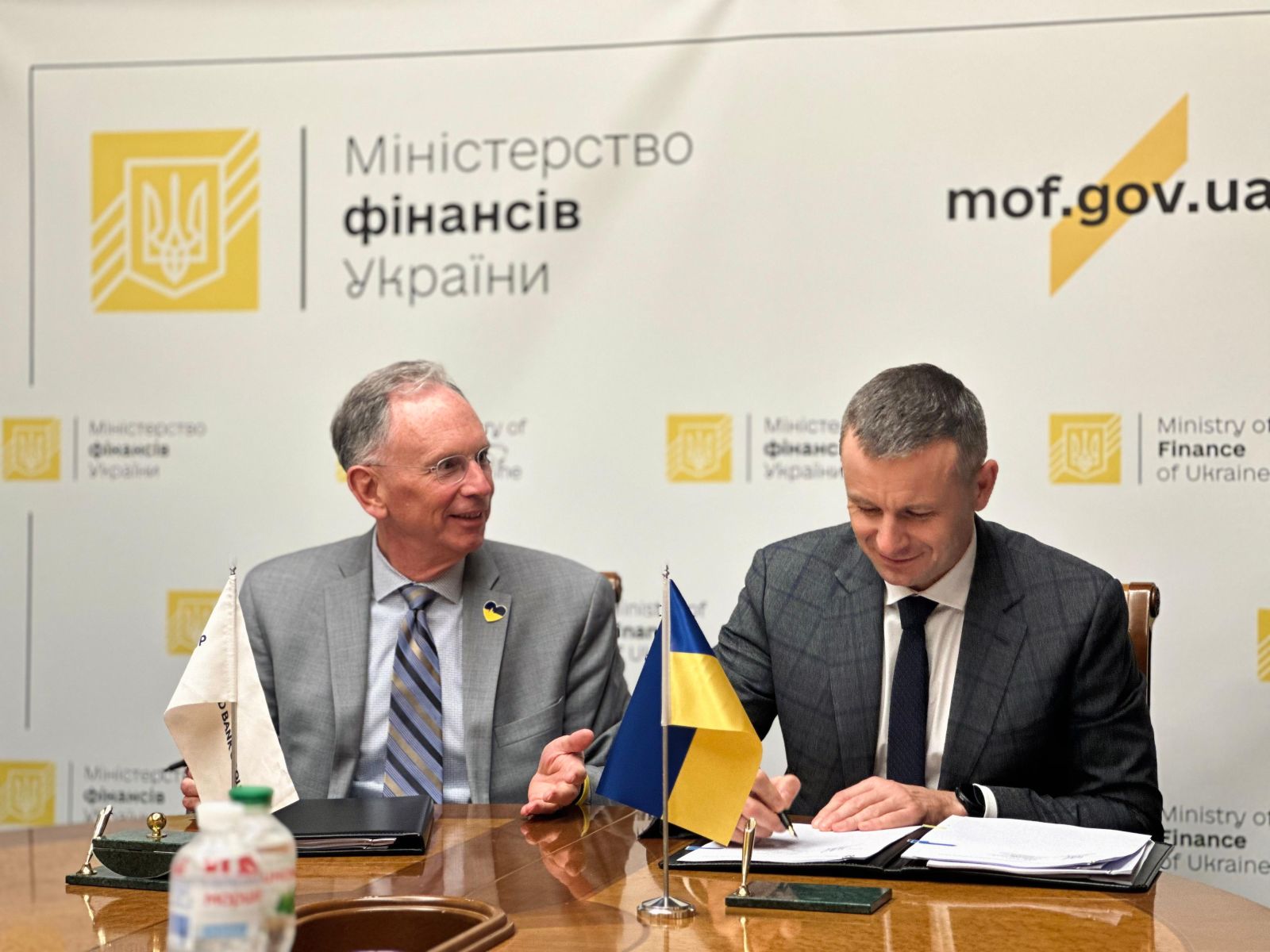Ukraine's Finance Minister Serhiy Marchenko and World Bank Regional Director for Eastern Europe Bob Som signed financial agreements for the new systemic project "Support for Reconstruction through Smart Fiscal Management" (SURGE).
The project aims to create a proper environment and institutional norms for effective and accountable implementation and financing of climate-oriented recovery efforts.
The total planned funding for the project is $750 million. Ukraine is expected to fulfill the measures outlined in the loan agreement with the World Bank's International Bank for Reconstruction and Development (IBRD) by the end of 2024, receiving $400 million in funds.
A loan agreement of $450 million has been signed with the ADVANCE Ukraine Fund, supported by the Government of Japan, as well as a credit agreement for $300 million under the Special Program for Ukraine and Moldova's recovery from the Bank's Crisis Fund.
"Through active cooperation between Ukraine’s Ministry of Finance, the Government, and the World Bank, we have the opportunity to attract the necessary resources to support and develop key areas of citizens' lives and administrative processes. The implementation of the SURGE project will help the Ukrainian government improve public investment management, making it more effective and transparent. This is an important step toward meeting Ukraine's recovery needs," emphasized Serhiy Marchenko.

Additionally, a grant agreement was signed for the investment component "Strengthening the Government's Capacity to Implement Fiscal Reform" (STRONG), totaling $10 million from the Multi-Donor Trust Fund for Ukraine's Support, Recovery, Reconstruction, and Reform (URTF). The STRONG project aims to support the effective implementation of institutional reforms within the SURGE framework.
The SURGE implementation will utilize the "Program-for-Results" financial instrument, aiming to support Ukraine's government efforts to create an effective public investment management system in post-war recovery conditions, improve fiscal management at the local level, enhance medium-term and programmatic budgeting at the local level, and revenue administration.





















